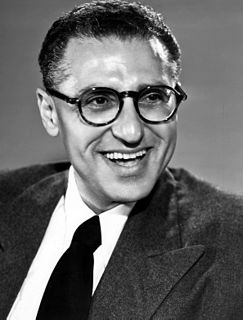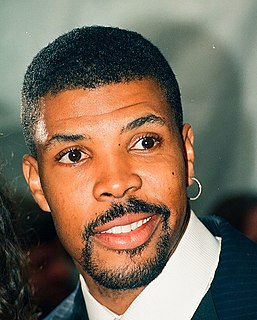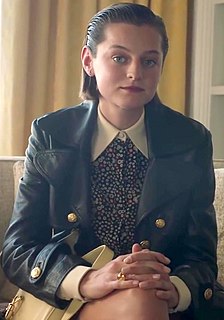A Quote by Jeanne Tripplehorn
It was difficult every ten days having a new director. I'm a real collaborator and, as an actor, I want to be directed. It's hard for me to shift gears.
Related Quotes
Good. Now the first thing you do is press in the clutch and slide the gear into reverse." She placed his hand on the gear shift in the center of her car, and showed him how to move it up and down. "You know, you really shouldn't fondle that in front of me, Grace. It's cruel." "Julian! Do you mind? I'm only trying to show you how to shift my gears." He snorted. "I wish you'd shift my gears like that.
It is one of the few elements in the process that a director really, really can't control: an actor's performance. If you have a director that understands that, it's comforting to an actor. You're starting the relationship more as a collaborator, rather than as an employee or some kind of a soldier trying to execute something you don't organically feel.
I think for some people real success would mean having all the money in the world and having everyone love you every minute of the day. I don’t know if that’s really my aspiration. I just want to keep doing this. I just want to keep finding new ways and new paths and new territory. Every time I get to do it, it feels like freedom.
For me, titles are either a natural two-second experience or stressful enough to give you an ulcer. If they don't pop out perfect on the first try, they can be really hard to repair. Or, worse, if the author thinks they pop out perfect, but the publishing house does not agree, it's difficult to shift gears. And then? Then you go insane.
The music director, Stephen Oremus, was telling me: "I hope you've done your work." We only have ten days rehearsal. The music is no joke. My solo singing is not that hard. But the stuff I have as part of the choir or as a "Dead Guest" in the second-half... I'm singing some really incredible chorus stuff that I haven't done in a long time. It's extremely difficult.
I've never acted before in a movie I've directed. This felt like the time to do it just because the " Leaves of Grass" movie itself is so much of a platform for the lead actor. It's really written for an exciting performance and it really depends on the audience watching an extraordinary actor having a great time pulling off this feat. It makes sense to me as a director to act in support of that.
Every film I've ever worked on, and that includes 'Braveheart' and 'Trainspotting,' I've always witnessed a director having a breakdown. Every director will have a day, without exception, where they just can't do it anymore, they don't know what to say to their cameraman, their cast. It's the sign of real, physical exhaustion.



































